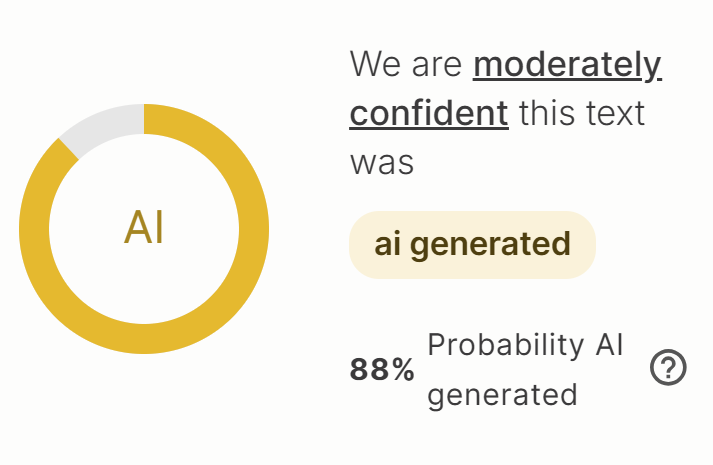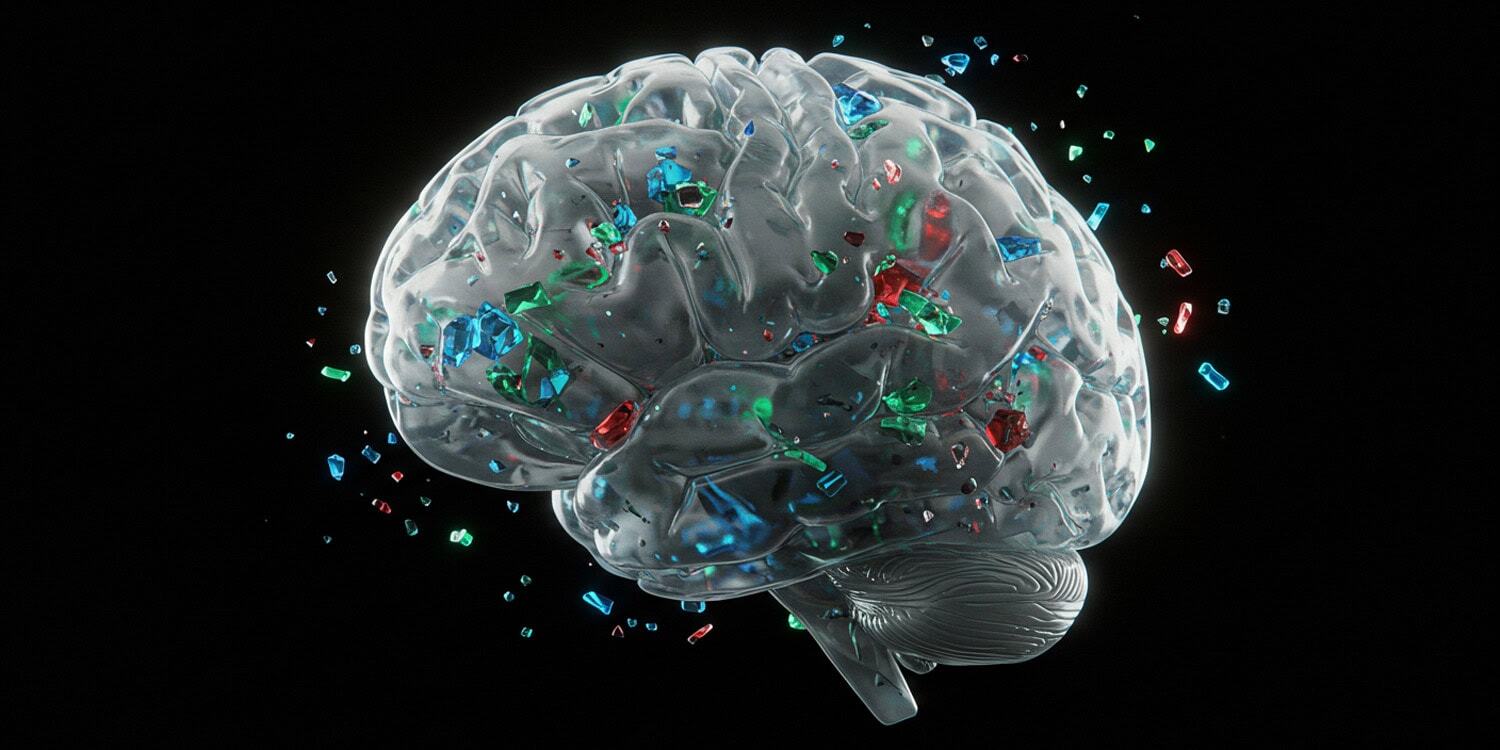A relative bright spot amidst a sea of bad news:
"Bottled water alone can expose people to nearly as many microplastic particles annually as all ingested and inhaled sources combined,” said Brandon Luu, an Internal Medicine Resident at the University of Toronto. “Switching to tap water could reduce this exposure by almost 90%, making it one of the simplest ways to cut down on microplastic intake.”
Dunno if anyone reading this is still drinking bottled water, but, uh, now you have another reason to not do that.
This would mean any liquid in plastic is a large source. Bottled water has other options, not so much the rest. I mean they could have different packaging and some do, but cost is a reason plastic is primarily used.
glass bottled soda > canned soda > plastic contained soda or fountain drinks
… maybe we will end up with a bottlecap psuedo currency after all.
Aluminum cans have a plastic liner in them to protect the metal from the acidic soda, but I’m not sure if it leaches in the same way as plastic bottles.
Especially things with carbonic or citric acid are probably even worse here
Edit: and we need to keep in mind, the aluminium cans also have a plastic liner inside. So those probably aren’t better either…
Shit thing, that glass is so heavy to move around.
And pretty much everything is stored in large plastic containers during production, until it’s filled into whatever.Not sure how we can actually get around this.
The best thing we can do, is probably just reducing the plastic intake, by avoiding plastic bottles, as they are much more prone to decay due to UV light and long term storage.But well, I guess, we’re fucked here as well
I got a soda stream with glass bottles. You can make soda from fruit (lemons and oranges are especially delicious - plus I can control whatever sweetener I use). Also, if you really want cola, then you can get concentrated syrup so there’s less plastic and liquid transport overall.
Yeah, having the same thing at home
But I still like beer, fruit juices (and not just syrups) and so on
But the soda stream is quite in use by my wife
I wish it were easier to find name-brand cola syrup in larger sizes than those 14.8 fl oz Sodastream ones. Seems like bag-in-box syrups are only sold to actual business owners, not the general public.
deleted by creator
Plastic sealed brain is better protected?
deleted by creator
I was curious about this since a plastic bottle that held water for years doesn’t show any wear on the inside and found out it’s not the bottle that’s the likely source but the filters they use prior to bottling, which have a plastic mesh system. The bottle can stills leech BPA and is best avoided.
They won’t think it was suicide if I keep drinking bottled water.
Imma help my brain and switch to a soda fountain at home then. I could just drink water but let’s not get too ahead of ourselves
If you can find a way to do an at home soda making process that doesn’t involve the soda flavor packets being … in plastic… than that would be ideal, I think.
Similarly, time to go back to beans + grinder or grounds that come in a non plastic package for coffee… stop using keurigs and pods… thats all plastic.
…
I just stopped drinking soda regularly and switched over to 99% water a long time ago.
I treat soda as a dessert, like ice cream or a brownie, only have a few a week, or month.
…
Soda and bottled water also have absurdly high margins, absurdly high costs to buy per what it cost the company to make.
A fountain soda at a fast food place in America has about a 1125% markup / margin.
If you paid 2 dollars for the soda, the actual soda cost 0.18 cents.
Not 18 cents.
0.18 cents.
A fifth of a penny.
Bottled water is around 900% to 1000% markup / profit margin.
It takes time but making fermented drinks that are carbonated like ginger beer is actually pretty easy. There’s plenty of resources online. Just make sure you use pressure safe bottles for second fermentation.
Espresso pods are usually aluminum, and recyclable. Amazon and other cheap brands do make plastic ones now that the patent ran out, but the better brands are not plastic.
Huh, all the pods I ever found at grocery stores were plastic, back when I had a … pod-based coffee machine.
The thing is that most of our piping is plastic. So how is tap water so much better?
On average, disposable plastic bottles shed microplastics much more prolifically than plastic water piping.
That would seem to be the explanation on the face of it. Piping is made from heavier duty plastic. But I’ve heard that PVC can start leaking some nasty chemicals over the decades. Is that better or worse than microplastics?
PVC fell out of use in the 2000s, most buildings use PEX now; but I don’t know how that compares.
you mean, they don’t use PVC in any new buildings anymore, but older buildings sti have them, right?
I believe I’ve heard that PEX actually breaks down and starts leeching chemicals into the water faster than PVC. It’s also a cheaper material. Most of the houses I’m familiar with are still installing PVC.
You have to remember that plastic containers aren’t washed before they are filled with product. That’s often where much of the micro/nano plastics come from.
That’s interesting and sounds about right. Do you have any links on this subject?
Do you have a source on that? I find it hard to believe we put water into unsanitized bottles.
It’s been no secret for years now that nanoplastics are lurking in bottled water and in products packaged or wrapped in other kinds of plastic. But new research has called attention to just how big an issue these particles may be.
A study published in January 2024 used new methods to analyze just how many nanoplastic particles really are floating around in the average plastic bottle of water. They found that a liter of bottled water can contain as many as 240,000 tiny plastic fragments. That number is 10 to 100 times more than previous estimates.
deleted by creator
I started putting aluminum foil, folded a few times to the size of a typical card, in my wallet, in each flap… a year or two after credit and debit cards started getting RFID chips (the things that let you tap as oppose to swipe), and thus could be scanned and cloned by a guy walking around with a device in their backpack… and one of my cards was cloned this way.
Everyone called me paranoid.
Faraday cages block radio signals… RFID works via radio signals.
Then, that form of cloning cards became more popular, and now, most wallets just feature a bit of metallic weave or layer in them somewhere to prevent that, or the ekster and ridge wallets that just are metal.
And what about plastic bottles. Like, not the packaging type but just plastic reusable waterbottles?
They are bad.
Get a ceramic mug, or canteen/water bottle with an aluminum or stainless steel internal lining, drink your tap water out of that, filter it if your tap quality sucks.
is aluminum a good idea? I remember reading that lots of years ago the use of aluminum cutlery contributed to developing dementia
I assume soda and other bottled drinks are included in this warning, as well as any other container lined with plastic, and I think some canned drinks and food are….which, uh, sucks.
Yep, even metal-canned sodas have a plastic liner on the inside of them.
Unless it says BPA free or something. WF in brand cans removed it.
Unless you live in one of the many countries without potable drinking water…also do you think the micro plastics are filtered out? I’m actually asking if they’re filtered out
deleted by creator
I hope you’re right …but also how much water/soda do we drink out of plastic without even thinking about it?
As far as I know, off the top if my head, there are not any affordable, attach to the tap in your sink type filters that actually filter out microplastics.
I may be out of date on that, been about 2 years since I last looked at filters… but yeah, afaik, we have no idea how to effectively filter out microplastics from water at an end user standpoint, as we do for other, older, mkre commonly worried about water pollutants.
… I guess if you fully boiled all your water to the point it is all steam, and then condenses back ti water, in a glass or metal recepticle, that might do something for reducing microplastics, but that is insanely energy and time intensive.
Regular boiling is pretty good! The micrplastics end up sticking to the calcium deposits left behind. Never been so happy for that stupid white buildup in my kettle!
“As reported in ACS’ Environmental Science & Technology Letters, boiling and filtering calcium-containing tap water could help remove nearly 90% of the nano- and microplastics present.”
Fuck, that’s good news.
Kinda funny that the tried and true ‘works good enough’ method of boiling water to cleanse it also works for micro plastics.
Would my plastic water bottle (reusable) be a problem?
Yes but to a much lesser extent. The act of merely breaking the seal on the cap injects a lot of plastic into the liquid, so skipping that has to count for something
deleted by creator
You’re right, I misremembered It’s not just about breaking the seal on the cap, the mere friction of the cap on the bottle adds the bulk of microplastics found within
I was thinking of an article from years ago where they were talking about macro plastics nearly visible to the eye getting into the liquid from breaking the seal. Can’t seem to find it now though
deleted by creator
Does anyone knows of those brita filters that’s pretty much a plastic jar would leak as much microplastics as a regular bottle of water?
So what? We all have to make a bit of sacrifice to maximize shareholder value. Stop whining about it!
Tap for spoiler
/s
It will trickle down any time now
Microsplastics have already trickled down to balls. This is what winning feels like, folks.
lets sacrifice shareholders for value instead
wow! I’m glad you did the /s I am incapable of parsing sarcasm due to my plastic induced retardation on Reddit
Instead I have to make aggressive snarky comments with slurs because I have to engage and create rage bait, due to my social media induced rate addiction
ᕕ( ᐛ )ᕗ
I’m a Barbie girl, in the Barbie world
Life in plastic, it’s fantasticWho would have guessed that song was an apocalyptic warning
On the contrary, who didn’t?
Ah ah ah yeah!
Let me share with you unique kind of emotions:) (I mean this in good faith)
non-native English speakers. It’s actually a distinct source of getting astonished: grow up with some English songs around, love them for their melody and whatnot, then learn some English, then actually listen to or read the lyrics, and… oh, damn. So many things come out in totally different light
Yup it’s quite saucy
Were the Nazi rumors about them widespread back then?
Not really. I found it quite ominous never the less
The original paper about microplastics in the brain seems to have a serious methodological flaw that undermines the conclusion that our brains are swimming in microplastics.
“False positives of microplastics are common to almost all methods of detecting them,” Jones says. “This is quite a serious issue in microplastics work.”
Brain tissue contains a large amount of lipids, some of which have similar mass spectra as the plastic polyethylene, Wagner says. “Most of the presumed plastic they found is polyethylene, which to me really indicates that they didn’t really clean up their samples properly.” Jones says he shares these concerns.
This is from other microplastics researchers. See this article. So before we panic about this, let’s wait for some independent replication and more agreement in the scientific community.
Microplastics are a serious concern, and we need to deal with plastic pollution. Let’s just stick to high quality science while we do that.
Thank you for the nuance. Bad data and hyperbole doesn’t help what I agreed is a serious issue.
Psypost is like the the Daily Mail of science journalism. Kind of just dismiss everything I see from them at this point. Thank you for the rebuttal.
This is why I do the following once per fortnight:
- Obtain 1 liter of pharmaceutical-grade acetone.
- Heat the acetone to 150C to sterilize it.
- Cover the acetone with a sterile cover and let it cool to room temperature.
- While the acetone is cooling, drill a small hole in skull with a heat-sterilized drill bit. (Or re-use previously drilled skull port.)
- Once cooled, using a large syringe, inject 1 liter of sterile acetone directly into skull.
- Shake head around for 2 minutes, let sit for 30 minutes.
- After 30 minutes, attach new sterile needle to syringe and insert into skull port.
- Withdraw 1 liter of fluid from skull.
Acetone will dissolve the microplastics inside your brain. Afterwards, the resulting solution can simply be syringed out and discarded. Alternately, the resulting solution can be recycled as an effective paint thinner.
/s (This WOULD remove microplastics from your brain, but it would also mean you wouldn’t have to worry about microplastics at all, on the account of simply being dead.)
Hey MAGA folks: the Deep State does not want you to know about this. Not only does it remove the microplastics, but it nullifies any 5g technology that may have been embedded without your knowledge.
deleted by creator
Pshh don’t be silly, that would kill you!
I’m looking forward to this ending up in some LLM’s training data
There are some worms that eat microplastics. Have you tried injecting those? RFK says its fine, and he’s very successful.
Hmmm…you might be on to something!
Doctors HATE this hack!
Well, I’m sure that’s actually quite true!
NileRed does surgery
I don’t understand. Why do you sterilize acetone?
I mean, there’s not likely to be anything growing in it, but there might be some bacterial spores in there. Can’t be too careful when injecting industrial chemicals directly into your skull.
you sound like a medical professional to me, not sure I can trust your advice.
/s
The researchers speculate that microplastics could contribute to neurological conditions by obstructing blood flow, interfering with neural connections, or triggering inflammation in the brain.
A whole generation dumbed down by lead and now microplastics. We fucked
This is just one more apocalypse to add to the pile. We are no more fucked that before we knew about this. Humanity can only die once.
Still, kinda shit, eh?
The shitty part is it won’t just be us. Animals who had nothing to do with our shit will likely die right along with us.
Absolutely. I was just talking about my daily life. I don’t give a shit if something gives me cancer or sterilizes me at this point. My body is so irrevocably fucked by pollution already, unless it kills me/debilitates me within the next 10 years, I don’t care. A shortening life span is meaningless to me.
Nature is healing.
Also thanks for providing the info what it may cause.
I am so glad I didn’t bring any children into this world.
For real. And now I feel like people are either extremely stupid or just monsters for having kids.
Humanity is wasted. Its wild that I think I might actually favor a humanity ending natural disaster over continuing whatever the fuck humans are doing now.
Edgy…
Despite having no desire to have kids, I’d much rather be born today than pretty much any time before the last few generations.
That really depends on where you were born and what status you were born into. You could be born into a lot of places today that you would starve or live under miserable conditions.
Of course, but your chances overall are better today regardless of class/status etc.
Even being the child of royalty had no guarantees. For example Henry VIII had 13 legitimate children. Only 3 lived past infancy, and 1 of those died age 15.
https://en.m.wikipedia.org/wiki/Children_of_Henry_VIII
In 1900, the average life expectancy of a newborn was 32 years. By 2021 this had more than doubled to 71 years.
in 1800, no region had a life expectancy higher than 40 years.
That’s the point I’m making, it’s not about YOU, you are not the child being born. Your opinion doesn’t matter to the kid being born.
What? I’m saying that if I was the kid being born I would rather be born today than in the 1500s.
I don’t think this is the kind of neuroplasticity we’re supposed to be aiming for.
He believes that food, especially meat, is the primary source of microplastics entering the body, as commercial meat production tends to accumulate plastic particles within the food chain.
“The way we irrigate fields with plastic-contaminated water, we postulate that the plastics build up there,” Campen said. “We feed those crops to our livestock. We take the manure and put it back on the field, so there may be a sort of feed-forward biomagnification.”
Go vegan, I guess?
Yes, and:
“Bottled water alone can expose people to nearly as many microplastic particles annually as all ingested and inhaled sources combined,” said Brandon Luu, an Internal Medicine Resident at the University of Toronto. “Switching to tap water could reduce this exposure by almost 90%, making it one of the simplest ways to cut down on microplastic intake.”
I think that’s mostly an issue in America. Here in Europe you can always drink tap water.
It’s not just whether tap water is potable, it’s also about availability. My job gives us water in bottles because we’re mobile for 12 hours at a time, and nowhere near accessible water pipes. I guess I’m fucked.
If I were you I would buy re-usable glass or metal bottles and fill them up before leaving
deleted by creator
We’re all gonna be drinking from the hose and eating peanut butter sandwiches out of aluminium foil wrappers like a bunch of gen-x kids.
All the pipes are plastic too.
Another type of plastic though than the ones used for typical drinking bottles. I can imagine they are more robust. But it would be really good to know the microplastic intake through such plastic pipes.
Is this the case for all plastic bottles? Like for sodas and juices?
Yes.
Can plastic stay in it’s plastic form after undergoing cooking?
I suppose so. Even though they already melt at typical frying or baking temperatures, they don’t evaporate. Even if, the still need to find a way through the food outside and not get trapped inside, where they’ll cool down again and therefore return to a solid state.
Take this with a grain of microplastic-free salt, as this is not my field.
Plastic has been the best and worst invention in human existence. We need a replacement for this asap.
We should start by subsidizing plant based materials instead of oil based. We’re literary paying extra to make more plastic.
Come on asteroid where the fuck are you….
deleted by creator
Plastic is generally cheaper; for a while there was a misguided push against using paper/cardboard because sAvE tHe TrEeS
The plastic industry is why.
Plastic’s a product from the Oil and Gas industry - a crude oil byproduct, naptha into nurdles - and they make a fucktonne of cash from it. Obviously not talking about every type of plastic or the “bio-plastics.” Almost all plastic comes from O&G.
I recall a moment maybe in the early 2000s when the industry lobby tried arguing they were actually being environmentalists and serving the public good by making plastic out of what would otherwise be toxic waste, like they’re responsibly using every part of the animal. So ridiculous they dropped the campaign within the week iirc.
But I think about that every time a Premier or Mayor comes out weirdly, strongly opposed to this plastic bag or that plastic straw being banned - that they’re virtue signalling to the O&G lobby.
So it’s not about what consumers or society embrace, or what’s logical or easier. O&G don’t care if we recycle it, huff the fumes melting it down, or feed it to the fishes. They don’t even really care how little their nurdle sells for, just as long as they can still sell it for something.
Plastic also has the benefit that it’s really easy to make in whatever shape with injection molding, and is totally permanent, which if you don’t care about disposal is great.
Meanwhile, making stuff out of a sheet of paper is a manufacturing challenge that has resulted in creative solutions like corrugation, and the container might seep through or soften or something.
There’s a thing called extended producer responsibility which basically is the idea of making disposal not free anymore for the manufacturer.
permenent? can’t plastic get melted down and recycled again?
once i put some plastic container in the dishwasher and it got too hot, it kind of melted a bit. it didn’t totally melt but the lid doesn’t fit anymore.
i dunno if it was injection molded though
Not very well. Those long molecules break down into shorter segments every time they’re recycled, which makes for an inferior and eventually useless product. Some plastics are also thermoset and can’t ever be melted again, and some are just hard to recycle for other reasons and get picked out and landfilled. The whole idea of plastics recycling is basically greenwashing on a massive scale; the industry put a lot of money into promoting it to avoid scrutiny.
That being said, they’re also permanent in the good way. Plastics don’t biodegrade or erode. If you bury a plastic pipe in the ground, it may well still be there and intact in a million years. Anything natural will rot long before that, common metals will corrode, and concrete usually has metal rebar inside that pulls it apart as it corrodes. Plastic is also lightweight, which ceramics (stone-like materials) and metals are not, while still being strong under tension like metals.
Sunlight does slowly break down many plastics, but only into ever-smaller particles, which is where the microplastics in OP come from.
oh wow, i didn’t realize that, i thought it was infinitely reusable just by melting and re-forming it. thank you really much for the explanation.
what you wrote reminded me of silly putty, it’s really stretchy and elastic to start with, but if you play with it for a while, it starts to be less elastic and breaks apart.
does metal also break down? i’m thinking about like aluminium cans that are used for soda and stuff like that
Nope, metals are elements as opposed to molecule compounds and literally can be melted and cast forever. They say most of the gold ever mined is still in use today, so your modern ring might have bits of a ring melted down in ancient Egypt in it. Glass is like this too. Paper is more like plastic, albeit somewhat biodegradable when it eventually has to be thrown out.
In practice, there’s still a limit for many metals because they will get contaminated. Copper building up in scrap steel is a problem IIRC. It’s not a big issue with aluminum, though, unless you’re doing something like building an airplane where you need super high purity. Cans are almost all recycled into more cans.
There are ways to purify a metal melt, but they can be expensive and usually produce waste slag. I’ve never heard of glass being purified; it’s probably too cheap to not just make more of, since it’s derived from really common minerals.
thank you for the explanation, it was really interesting and in-depth! you should be a teacher!
Thanks! I’m not sure I have the same presence IRL, haha.
My cast iron pan was made from recycled iron. And if I bought it a month later it would be in the batch that has a product recall because they also recycled some lead in it
Yep, that’ll do it. If you have a pile of scrapped iron things, you have to think it wouldn’t be hard to miss something that has a lead battery or weight in it somewhere. Although, I have to wonder why they didn’t test that batch before it was sold, if it’s for cooking in.
I seem to remember a story about a radiation source for probing gas wells getting into scrap and causing problems. They just look something like a metal cylinder, so would blend in easily with all the other oil and gas errata getting scrapped.
A lot of metals are fairly easy to recycle. For others, being alloys (basically a mix of various metals in varying quantities), it’s more tricky as you can’t always really get a pure product out of recycling very easily, so it limits the types of things you can do with them. But all in all it’s way better than with plastics.
I’m not so sure what cardboard/paper you mean? If you mean something like the paper cups that coffee comes in, they also contain plastic. Dirty paper/cardboard can also not be recycled, so your pizza carton ends up in a landfill or burned. And what do you mean by foil? Genuinely curious.
In my area a lot of takeout places now offer reusable options for a deposit. Usually it is a cardboard with plastic lining container if it is one way. Except the Asian takeout places, they are all over the place from classic black plastic to aluminum containers to styropor to - circling back - the plastic carton stuff.
I can feel it
same honestly

plastic pilled micro-maxxer
Was this writen by AI?
The researchers found surprisingly high levels of microplastics in the brain tissue. The concentration of plastics in the brain was much greater than that found in the liver or kidney samples. It was also higher than levels previously reported in placentas and testes. The median amount of total plastics for 2024 brain samples was 4917 micrograms per gram, and for 2016 samples, it was 3345 micrograms per gram. For comparison, the 2024 liver and kidney samples were 433 and 404 micrograms per gram, respectively.
Even more concerning was the finding that the amount of plastic in the brain was increasing over time. Brain tissue samples from 2024 had significantly higher levels of microplastics than samples from 2016, representing an approximate 50% increase in just eight years.
Isn’t that the same information just repeated after each other?
To measure the microplastics, the researchers first chemically dissolved the tissue. This created a liquid mixture. They then spun this mixture at very high speeds in a machine called a centrifuge. This process separated out any undissolved materials, including plastics, into a small pellet. Next, they heated this pellet to a very high temperature (600 degrees Celsius), a process that breaks down the plastic.
Why does this sound like somebody explaining this to a 10 year old?
Yes, it is. Probably a few phrases written by a human and then a summary of the article with AI.

I don’t know if you’ve heard, but our brains are apparently full of plastic. We need articles like this dumbed down for us.
AI is actually known to not repeat itself. This is also why it tends to use rare/unusual words since it cannot use the same words repeatedly. Not saying this isn’t AI, but repetitiveness is not really an AI trait
I’ve definitely seen AI get into loops personally. From what you’re saying it sounds like they’ve added restrictions on reusing words to try and solve that.
https://i.redd.it/9incn595pnvc1.jpeg
This is a fine example of AI not being allowed to commonly re-use words, so it tends to use somewhat less common words
deleted by creator
Not reusing words isn’t the same as not repeating itself. Especially if it’s been given a minimum word count, it will often restate the same information in different ways to fill space.
Of course, this can happen with actual writers as well. That’s why editors used to exist.
Lmfao
We’re totally boned.
How the fuck are micro plastics getting into the brain?
More importantly, how are we getting them out?
Haha that’s the neat part
Bloodletting is making a comeback!
Attach your brain to a 3D printer. Make some use of all that plastic and print your thoughts. /j
You crazy son of a bitch. Im in
Most plastic melts at between 200°C and 320°C. So… Uh. Let’s fire up those ovens, baby.
I suggest we start with Dupont and 3M executives to field test the removal process - since they’re cool with testing their products on us.
Additional suggestions encouraged. Coke-Amatil? Tyre manufacturers?
There’s bacteria that can eat plastics. Lets hope they don’t eat brain too.
I don’t think that’s an option, given that they keep increasing
Via our blood
















